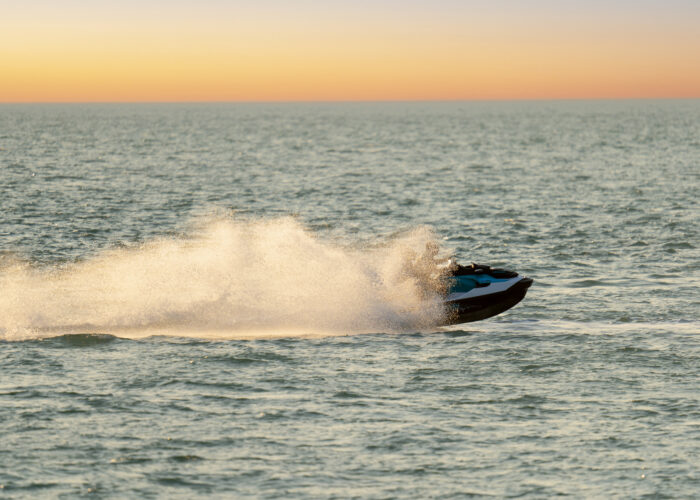
Boat Accident Lawyer in Outer Banks
A boat accident can leave you with serious injuries and unexpected financial burdens. If you’ve been injured in a boating accident in the Outer Banks, the boat accident lawyers at Ward and Smith can help you seek justice. We are dedicated to holding negligent parties accountable and securing fair compensation for our clients. Call us today at (919) 827-8475.
How Changing Weather Conditions Can Lead to Boating Accidents
Boating can be an enjoyable way to spend time on the water. In places like the Outer Banks and the surrounding North Carolina lakes and rivers, it’s a popular way to relax, fish, or explore. But when weather conditions take a sudden turn, a peaceful trip can quickly become dangerous. Weather is one of the main contributing factors in boating accidents, and understanding how it plays a role is key to staying safe and understanding potential liability.
The Connection Between Weather and Boating Safety
Weather affects almost every aspect of boating. Wind, waves, rain, lightning, and reduced visibility all influence how a vessel handles and how safely it can be operated. In many cases, an accident happens not because of a boat malfunction or reckless behavior, but because the weather changed faster than expected, and the people onboard weren’t prepared.
Boaters have a responsibility to check the weather before heading out and to monitor it during their time on the water. Failing to do so can lead to serious consequences, including injuries or fatalities. It can also play a role in determining who is at fault when a boating accident occurs.
Common Weather Conditions That Cause Problems on the Water
Certain weather conditions create more risk than others. Some of the most common include:
1. Sudden storms
Pop-up storms, especially during the warmer months, are a real hazard. A sunny day can turn stormy in minutes. High winds, heavy rain, and lightning are not only uncomfortable—they’re dangerous. Boats can be tossed by waves, visibility can drop, and lightning strikes pose a direct threat.
2. High winds
Even without rain or storms, strong winds can make boating difficult. Wind affects how a boat moves and how easy it is to control. It can also kick up waves that batter smaller vessels or push a boat off course. In open water or narrow channels, this can quickly lead to a collision or capsize.
3. Fog and reduced visibility
Fog is especially dangerous because it limits what a boat operator can see. Other boats, floating debris, docks, and land masses may not be visible until it’s too late to avoid a crash. Without clear sightlines, even experienced boaters can make navigation errors.
4. Cold water and hypothermia risks
In colder seasons, falling overboard can quickly turn deadly, even if the weather seems manageable. Hypothermia sets in faster than many people realize. Wind chill and water temperature should always be considered, especially when boating in early spring or late fall.
How Weather Influences Liability in Boating Accidents
If a boating accident occurs and weather is a factor, it doesn’t automatically mean no one is at fault. In fact, failing to respond appropriately to bad weather can be considered negligence. Operators are expected to use reasonable judgment and follow safety protocols based on the conditions.
Here are a few examples of how negligence and weather may overlap:
- A boat operator ignores weather warnings and goes out despite high wind or storm forecasts.
- The operator fails to return to shore when a visible storm starts moving in.
- Safety equipment like life jackets, lights, or radios are missing or not used, making the situation worse in poor weather.
- The boat is not suited for the weather conditions, and the operator proceeds anyway.
In these cases, an injured party may have grounds to file a claim against the boat operator or owner. Proving that the operator failed to act with reasonable care is key to these types of personal injury cases.
Steps to Take After a Weather-Related Boating Accident
If you’ve been hurt in a boating accident and weather played a role, the steps you take afterward can make a big difference in your claim. Here’s what to keep in mind:
Get medical attention
Always seek medical care, even if your injuries seem minor. Some effects, like head injuries or internal trauma, may not be obvious right away.
Document the scene
If you’re able, take photos of the boat, injuries, and weather conditions. This can help show the severity of the weather and how the boat was impacted.
Speak to witnesses
If others were on the boat or nearby, get their contact information. Their statements can help clarify what happened and how the weather affected the situation.
Request a copy of the accident report
The U.S. Coast Guard or local authorities often file official reports for boating incidents. These records are important when building a case.
Talk to a personal injury attorney
A lawyer experienced in boating accidents can help determine if negligence played a role and advise you on how to move forward with a claim.
Preventing Weather-Related Boating Accidents
While not every weather event can be avoided, many accidents can be prevented by taking proactive steps. Here are a few safety tips for boaters:
- Always check marine weather forecasts before leaving shore.
- Use a weather radio or app to get updates during your trip.
- Avoid boating in areas prone to sudden storms or rough water.
- Make sure all safety gear is in good condition and easily accessible.
- Know your limits and the capabilities of your vessel.
Boating is meant to be enjoyable, but safety should always come first. Being aware of the risks that weather brings and planning accordingly can reduce the chance of a serious accident.
Work with a Boat Accident Attorney Who Cares
Boat accidents can lead to serious injuries and significant hardships, but you don’t have to navigate the aftermath alone. The boat accident attorneys at Ward and Smith are here to help you hold the negligent parties accountable and pursue fair compensation. Call us today at (919) 827-8475 and let us help you rebuild after your accident.
Featured News
View All
